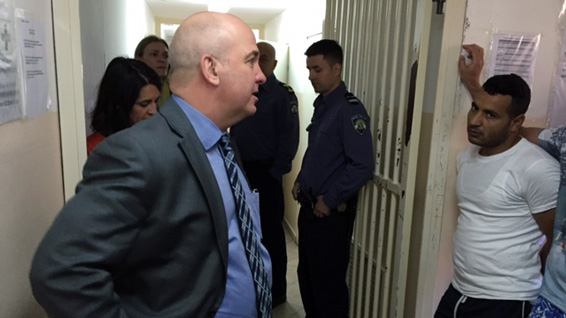“Social cohesion and pluralism are under threat in Croatia. I urge the authorities to initiate and engage in an open dialogue with all stakeholders in order to protect pluralism and avoid further polarisation in society. Moreover, political leaders need to send an unequivocal message against violence, discrimination and intolerance, in particular against members of national minorities and journalists” said today the Council of Europe Commissioner for Human Rights, Nils Muižnieks, at the end of his five-day visit to Croatia.
The Commissioner is very concerned at the reported rise in ethnic intolerance, hate speech and other forms of hate crime targeting members of national minorities, in particular ethnic Serbs, members of the Jewish community and Roma. While Croatia has a legislative and institutional framework for the protection of national minorities which may serve as a model, some recent setbacks, including an 11% cut of public funds for the national minority civil society, need to be reversed.
As regards media freedoms, the Commissioner is seriously concerned about the inadequate response by the authorities to the reported cases of physical attacks, death threats and intimidation against journalists. “Journalists play the important role of a public watchdog in a democratic society and their safety has to be ensured by all states. Impunity for crimes committed against journalists needs to be effectively addressed and dissuasive penalties for such crimes have to be imposed. Public discourse which justifies attacks against journalists is dangerous and detrimental to media freedoms and democracy.” Of particular concern to the Commissioner are a number of abrupt changes in management and editorial positions in the public service media, including the government’s proposal to terminate the mandate of the head of the Agency for Electronic Media and to dismiss its members. The Commissioner urges the authorities to ensure that pluralism of the public media service and the independence of the broadcast regulator, key elements for media pluralism and freedom of the media, are preserved and protected.
The Commissioner underlines the need for Croatia to address effectively a number of pending issues related to the 1990’s wars, including the elimination of impunity for serious human rights violations and violations of international humanitarian law, the provision of effective and adequate reparations to all war victims, establishing the truth about missing persons and creating the necessary living and societal conditions for sustainable return of refugees. Commissioner Muižnieks notes with satisfaction the acknowledgment by the State Attorney of Croatia of the importance of regional co-operation in the prosecution of war-related crimes, and strongly supports initiatives aiming to improve and strengthen this co-operation. Noting that more than 2 800 persons, most of them Roma, remain stateless or at risk of statelessness, the Commissioner urges Croatia to resolve this issue as a matter of priority.
As concerns the human rights of immigrants, asylum seekers and refugees, while noting that few persons have sought international protection in Croatia so far, the Commissioner urges the authorities to develop comprehensive, long-term policies to integrate migrants into society, in particular in view of the forthcoming implementation by Croatia of its commitments under the EU refugee relocation scheme. In his discussions with the authorities about the pending draft amendments to the Law on Foreigners, the Commissioner noted as a positive development the inclusion therein of alternatives to migrant detention. However he urges the authorities to address the concerns of NGOs about the criminalisation of provision of humanitarian assistance to migrants. Noting the overall good material conditions in the migrant reception centre in Zagreb (Porin) and the Ježevo migrant detention facility which he visited, the Commissioner urges the authorities to accommodate migrants in the new building in Ježevo to ease overcrowding in the old building there. Lastly, the Commissioner urges Croatia to review and end the practice of obliging migrant detainees subject to deportation to pay for the costs of their accommodation and deportation.



